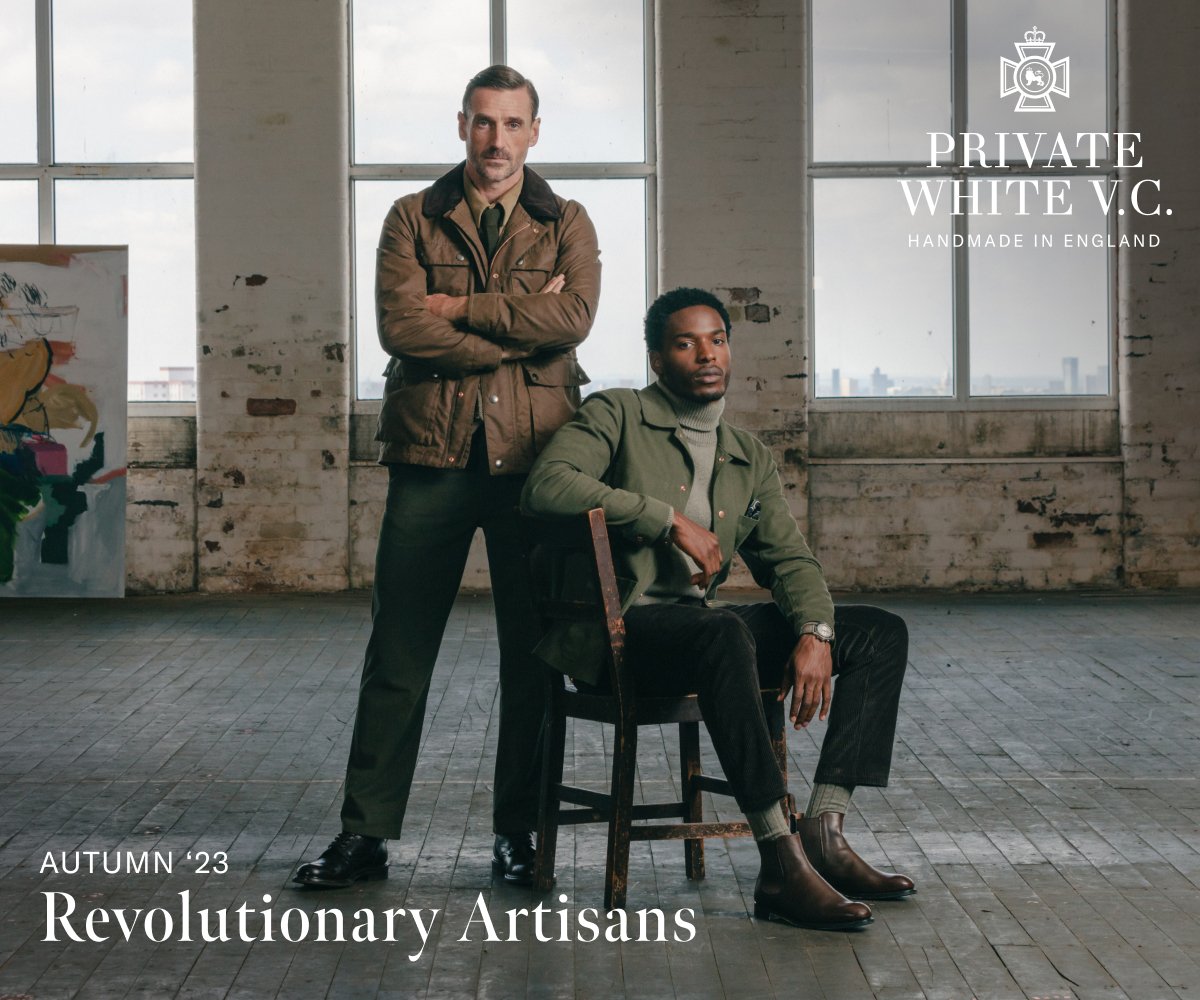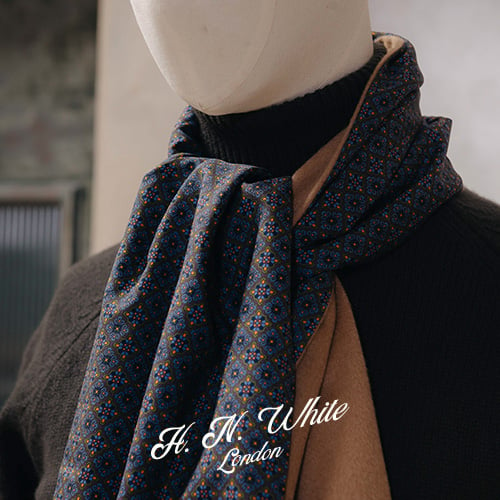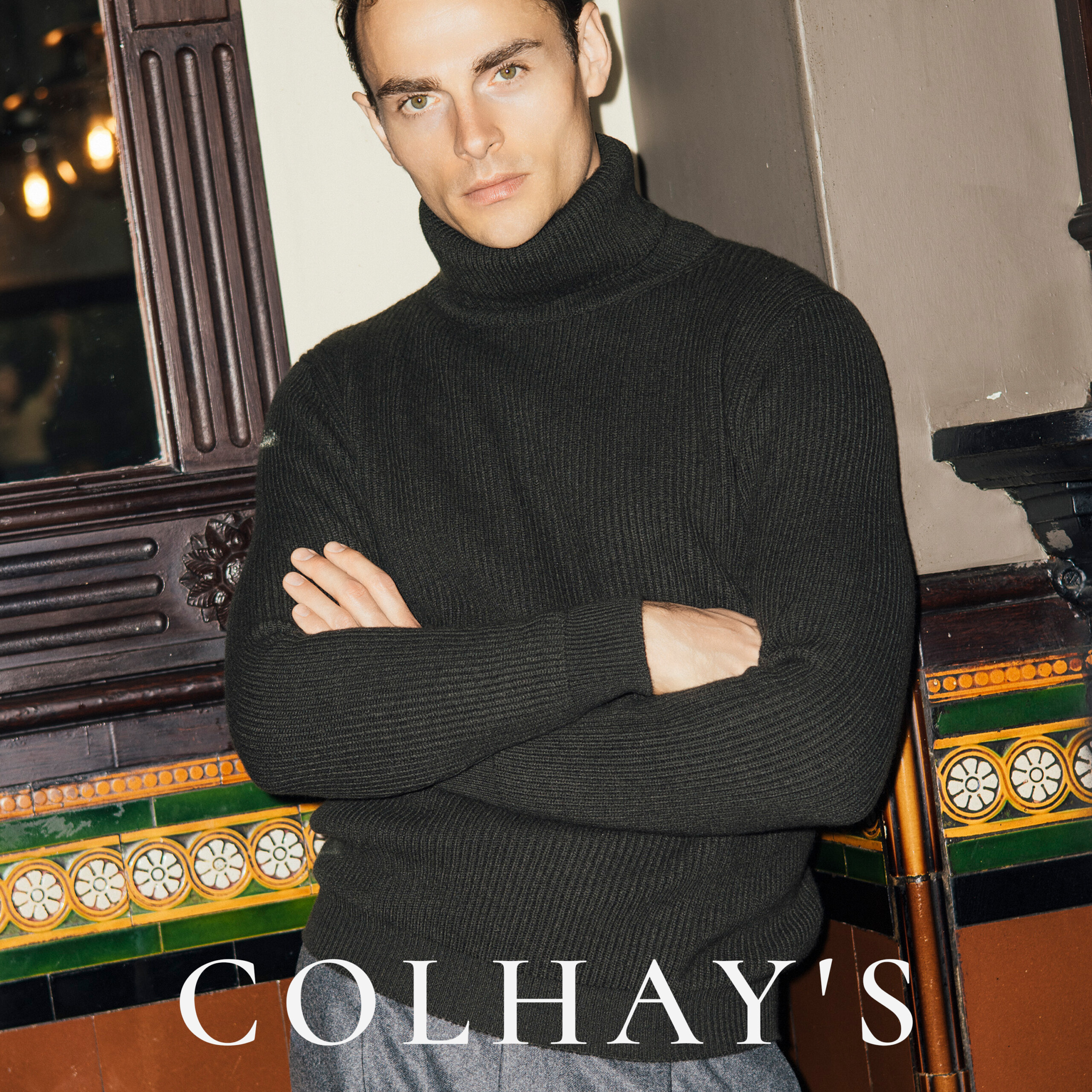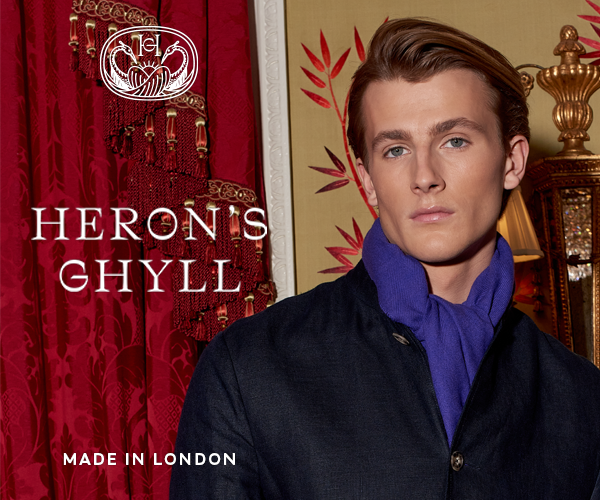Video: The New York Symposium – Dressing up and down

'Dressing up in a Dress-Down World' felt like a very timely subject for this Symposium, our first in New York.
And particularly relevant in the US, perhaps, where there has always been a cultural aversion to dressing too smartly - in the so-called 'classless society'.
It clearly hit a nerve with the attendees, who filled every one of the 200+ places, and were talking about it before and after.
Although we all had prepared questions (eg. Is dressing up still considered a compliment to the host of an event?) the talk quickly swung to other areas.
Such as the difference between public and private selves. Or whether anyone should ever dress like their son.
Scott Schuman criticised menswear fanatics for snobbishness.
Jay Fielden complained he got thrown out of a country club, despite being better dressed than anyone else.
And Bruce Boyer explained why he's similar to a corpse. It was quite entertaining.
I was particularly glad to have such a range of speakers - to break out of the menswear bubble. Averyl Oates was particularly effective there, given her fashion background, as was Scott given his coverage of men's and women's. John Demsey was very personal and insightful.
As I say at one point, the best news I heard all evening was that Estée Lauder is finding that quality and information is the best way to sell cosmetics today.
If it's happening with beauty products, there's hope for everyone.
Below are our lovely speakers and their titles. Thank you everyone for coming, and particularly to Budd and Anderson & Sheppard, who made the whole thing possible.
Enjoy the video.








Photography: Fred Castleberry






























Great discussions overall, I especially enjoyed Scott’s positive outlook on the future as supposed to Bruce’s somewhat grumpy views of things.
I do however share his views that we’ve seem to have lost our sense of occasion. Especially at funerals and baptisms I find people are not dressing with respect. Of course one could argue paying respects have little to do with what one is wearing, but that’s a separate discussion.
I think there’s an increasing interest in better casual wear too, especially among younger people, which in turn will lead into an interest in classic menswear. Guys in their early twenties ordering mtm suede jackets from Stòffa for instance, or mtm hoodies from Saman Amel, are more likely to get their first suit from a reputable mtm brand or possibly even bespoke, rather than any given high street store.
Certainly very interesting discussion. Enough so to have me watch it in one go just now.
The things I‘ll likely remember the longest are (in no particular order):
fewer accessories help avoid looking costumed
try not to be snobbish about other people’s length of jacket, they may just like it that way
respect the occasion and be aware of the tribes you‘re likely to encounter – if in doubt just be confidently yourself
unbutton your SB when sitting down (John)
wear longer socks (Jay)
Agreed!
You say “below are our lovely speakers and their titles” but only the photo of Anda has their title.
Good point. I’ll add them
Enjoyable discussion. Well I like Permanent Style because you speak to the sensitivities of the modern man who wants to look good in context, as opposed to wanting to dress up, or revere traditions for their own sake. Hope this perspective won’t go away now that you’ve gone full-time with your blog.
Absolutely not
Interesting how the views swung around during the discussion. From bespoke being the future because people don’t want to look just like every one else and the desire to avoid showing elitism or privilege by “dressing to the middle”.
I think for most people clothes just don’t matter the way they do to sartorialists.
I think how you grew up strongly affects how you dress. If your father never wore a suit why would you have nay understanding of why you would?
I’ve been commenting as I listen to the discussion. The overall thing I take away is that your clothing should be an authentic reflection of who you are.
As Bruce Boyer said that means knowing who you are. And that’s a journey. You start out imitating and gradually learn what you like, what suits you, what feels right.
Great discussion. I think Mr. Boyer was spot on with several of his comments, especially the “leveling of society and what happens to fashion?” and “we are all dressing down to the lowest common denominator.” Too much of our culture is pandering to and settling for the lowest common denominator, and fashion, as it always has, reflects societal trends. However, discussions like this gives me enormous amount of hope.
Didn’t know Boyer was such a bastion of stodgy cultural conservatism (though I had my suspicions).
“Have we lost our sense of occasion” (17:55)? How silly of me to think occasion defined primarily by good company and shared sentiment when it’s actually the suit and tie that’s paramount. If I wed my significant other and all my guests are wearing t-shirts, do I remain a bachelor? No, dear Bruce, what’s lost in this dress-down world isn’t a sense of occasion, but one kind of threads-based ostracism. God forbid we start judging people by the content of their character again. It takes a man with truly misplaced priorities (or autocratic leanings) to ask “what happens [to fashion] when society continues to become more interested in democratization…” (24:50).
I don’t think you’re being fair Ben. No one is saying clothes are paramount. Just that they are relevant. That they can be a very nice way to show that you are separating the particular from the everyday
Of course there are conventions to be followed.
Not dressing in a manner demanded by the occasion is simply rude, and even more so if driven by ignorance of what it right.
Well, Simon, do you think we’ve lost our sense of occasion because we dress differently for them? Do you bemoan the effects of social equality on fashion?
I don’t think there’s anything wrong with dressing differently for them. But it is underappreciated how nice it can be to dress in a particular way for a special event. Which might be wearing a white t-shirt, or indeed wearing something with religious connotations.
I think these sartorial discussions, whatever the venue or the speakers, all miss the essential point: most people cannot afford to dress well. The cataclysmic economic upheavals of the 20th century have left us with massive aspirations, and insufficient means. That is to say, the means didn’t keep up with the aspirations.
I’m sorry to have to say so (because I’m among the ones who dress badly) but the reason most people dress badly or dress down is not bad taste, or the loss of a sense of occasion. It’s just that they cannot afford to dress well.
Why not invite Angus Deaton or Richard Thaler to your next symposium? I’m being serious.
I really disagree Bobby. Previous generations had a lot less money relatively yet dressed much more formally.
Today clothing is incredibly cheap relative to income.
Simon
If this is the case it would be hugely valuable to readers (and I think a challenge to you), to offer an affordable wardroabe? Someone commented on a post about finding a decent suit for under a grand and it was crickets… help us out here!
Not everyone is in menswear and therefore must spend all their income on clothes, or are executive presidents at Estée Lauder!
I can try and look at it, certainly. The issue is it’s a very big market to try and talk about with knowledge and context, and it’s not one I’ve covered much so far. It also changes much more frequently.
But in terms of relative income, previous generations spent almost the same as a bespoke suit today. They just only had two or three, looked after them well, adjusted them, and had them in robust cloths.
Often you would have a new suit for Sunday best, a working week suit, and then one that was relegated to the gardening or similar. And every few years you bought a new one to replace Sunday best, and moved everything else down a notch
Really look forward to this!
Bobby the 99’er.
And yet these unfortunates spend thousands of dollars on technology, experience holidays, sportswear, etc. How do they do it one wonders.
“separating the particular from the everyday” …… advertising agencies would kill for a line like that !
I stole it from Howard Jacobson, in a piece on Radio 4 recently about dress
Nothing wrong with cultural conservatism per se and it has much to commend it as philosophers from Burke to Berlin have pointed out. You can have your ism which apparently thinks it’s okay to wear a t shirt at funerals and weddings while the culturally conservative can continue to treat such events as “occasions” worthy of some modest effort to avoid looking as if they have just got out of bed. Each to their own.
I like the way Bruce dresses but from the outset of the video he just comes across as a rich old white man bemoaning the fact that other people don’t spend €500+ on Marol shirts and god only knows how much on tailoring to dress like him. His “suspicion” that a man’s son doesn’t respect him because of how he dresses tells us an awful lot more about Bruce than the under-dressed men he’s ranting about.
Is Bruce Boyer´s colour of skin really relevant in this context?
I absolutely agree that the experience of an occasion can be enhanced, elevated by good, formal dress, which, as an avid reader of this blog, I obviously enjoy. It’s also clear that today’s casualization is in large part a cultural rather than a purely economic phenomenon. But the tendency to castigate people for their wardrobes, though indulged in timelessly, is petty, be it for over or underdressing. And that’s the posture Bruce takes in this talk, sloppily framing a personal bias with pesudo-sociological questions. For him, “the essence of fashion is, in a way, privilege” (24:14), and that’s just the way he likes it.
Very interesting Simon. Everyone came across lovely.
Heritage and the ‘story’ has a huge influence in the way we buy product. We prioritise style, fit and craft but the story ultimately draws us in.
You’re a very good listener Simon.
First of all, let me say that this was a very enjoyable endeavor on your part, Simon. I think this discussion adds a nice dimension to the blog and I hope you continue to engage in projects such as this. The variety of background within the panel added depth to the discussion and the inclusion Averyl Oates was, in my opinion, a very appreciated addition in a field that is dominated by men.
Along with many of the other comments, I really appreciated Scott Schuman’s positive outlook on tailoring. I also thoughts Jay’s comments that society at large (at least in the United States) has historically and continuously moved to more comfortable clothing is a great point that is lost among classic menswear enthusiast. And it is here where I think some of the anxiety around a “casual world” and the decline of formal dressing is centered. Is anyone really lamenting the fact that we no longer wear frock coats and top hats?
What I got from the discussion is that Saville Row and the Italian, classic clothing driven companies are not really in dire straights as much as they are in a time of change. Street fashion is full of “tailored” jackets, they are just cut differently and made with less conservative fabrics than we are accustomed to seeing. This was mentioned several times by almost every member of the panel with the exception of Boyer, and if companies adjust to the demands of the client (as in the example of Zegna given by Ms. Oates), then they will survive.
With some reflection after watching the video, I must say I am more positive about the future of tailoring than ever. Embrace change, respect the opinions and individually of others, refrain from judgement, let go of precedent and enjoy the fact that menswear is rife with options. Now, enjoy putting on you tie (if that is your thing), picking out your clothes and confidently go about your day!
Hi Simon,
Great event! But upon reading few comments made above, I just wonder whether what I call “the Bruce Boyer’s paradox” – “we have lost the sense of occasion”, that is – is really understood. Yet, due to its underlying high stakes, its multifarious stakeholders and far reaching consequences, it deserves better consideration. It’s a very complex issue, even though it doesn’t seem to be at first sight!
John
Interesting chat. I wish I had more occasions where I had to dress up, but usually it’s weddings and I’m running out of single friends. I do think it is very important to blend in though, you don’t want to stand out for the wrong reasons. But I believe every event or occasion has a spectrum of clothing possibilities and nothing is stopping us from looking good. I think it is acceptable to dress a level up from everyone else. It shows you’ve put in some thought and effort which is usually appreciated. For example, if you’re going to the beach, you could go with a t shirt, beach shorts and flip flops, or you could go with a linen shirt, something similar to PS shorts and maybe loafers or espadrilles. Even though we might be moving towards a dressing down culture, you can still stand out and look good.
I’m at about 40 minutes into the video and I had to stop and offer this point. I do believe that social media has sped up the fashion and bespoke menswear industries. It’s almost hard to get a nice piece you find because most companies have already launched the next set by the time you can properly take a look at the last one. Personally I do not like the constant rush. A lot of interesting takes on the panel and I am curious as to what you think about social media and bespoke menswear. Thanks in advance Simon, awesome panel.
Now at about 52 minutes in and the question about how saville row houses can let people know that they don’t exclusively make suits spurred this second comment. I visit this site a few times a week and I almost always come here to find and learn about quality knitwear, military heritage clothing (field coats, etc.), denim, shirts, and more causal outerwear (waxed jackets, etc.). I don’t wear suits regularly but quality and craftsmanship can exist in all clothes and this site is proof of that.
Nice to know, thanks Don
I think certain styles of clothes are cheap relative to income but, for instance, I know of nowhere I can buy trousers that are mid or high rise for less than £250.
That’s a fashion issue though really, rather than one of quality and relative value.
Apart from Scott and Simon, the other panelists just don’t get it. Specially Boyer (my god, what a dull patch of boring grayness). It’s not about the clothes, the look, the “heritage & pedigree”; hell, it’s not even about the fit or the appropriateness of matching outfit/situation in a social context.
It is all about THE PASSION. That’s why ALL true artisans get into this game (may they be tailors, shoemakers, shirtmakers, bloggers, photographers, writers and even shop owners). Obviously it’s easier to dress “cheaply” or being ill-fitted. Obviously it’s easier to just follow trends instead of developing your own identity. OBVIOUSLY a young tailor could be earning more money selling stocks and bonds, instead of practicing for hours his craft. But he does it because it’s his passion. He LOVES the feel of fresh cloth in his hands. The excitement of the shoemaker transforming a piece of wood into a last. The smell of new leather… As a customer, the joy of finally receiving your first bespoke commission.
It’s not about fashion. It’s not about selling more (John), the sense of “being different” or (god forbid) being better than the “50 year old who likes surfwear”. It’s about LOVING the craft and the artisanal and intimate side of things.
End rant.
Do you speak for the tailors, or for the clients, buyers, and wearers? Because, believe you me, it’s not about passion. It’s simply about getting dressed. And why do you put cheaply in inverted commas? It IS easier to buy things which cost less. We’re not all loaded. However much the rest of us admire good taste, good aesthetics, and sartorialism, the painful truth is we cannot afford it. So we dress badly, because that’s all we can afford.
The cultural shift that led to dressing down is just the result of the mismatch between aspirations and means. Let me give an example. Let’s say you live in the 1940s and don’t own a dinner suit, and cannot afford one. But you have crawled your way up the social ladder (helped along by the war and what have you) and are invited to dinner with some posh people. Do you go hungry, or do you turn up wearing an informal suit?
(I’d go hungry, but then I’m a self-conscious miserable working class boy).
Bobby
I think you are wrong to say we dress badly if we cant afford to wear the artisan stuff. Dressing badly is about not wearing stuff well; purple shirt with grey trousers and black shoes will always look terrible, even if all bespoke. Very different from wearing clothes which don’t cost much.
Absolutely
Honestly, there is absolutely nothing new here.
You could have had this discussion at any point since the ‘60s and come up with exactly the same conclusions. That is to say there is street ‘fashion’ , delivered by youth culture, and there is the rest. Amongst the ‘rest’ there is a small group of people who know or, think they know, how to dress well.
The true difference today is, amongst the happy few, there is a greater knowledge/interest in fabrics, the provenance of clothes and how things are made. Beyond that, it’s the same.
Bruce Boyer is boring beyond belief but he is right on one thing albeit he expressed it very badly. Men’s wear (not street fashion) is pure evolution. It is made up of a 1000 little details but if one of them changes – lapel width – the reintroduction of trouser pleats – or whatever. The evolution becomes a revolution.
I generally like Bruce Boyer, but I agree with others that his cultural pessimism here was well-met by Scott Schuman’s optimism and relativism. Perhaps Scott was sometimes relativistic to a fault (I think it’s OK to reject bumfreezers), but his spirit is constructive and infectious.
For those interested, at https://www.styleforum.net/threads/opinions-on-bruce-boyers-article-dressed-up-thoughtfulness-thoughtlessness-class-etc.547109/ there is an unusually thoughtful discussion about a Bruce Boyer article that touches upon many of the same themes (tradition, class, conformism). Many of the best contributions to that thread are by Derek Guy (Die, Workwear!), who I imagine would be great at a panel discussion like this.
I’m extremely interested in the intertwinedness of clothing and society, particularly for menswear. I could imagine a vibrant discussion that heads further into sociology/anthropology/semiotics.
Thanks for posting this.
Now that I have finally heard Boyer’s voice I have rather less esteem for his writing.
And I have to conclude that Curmudgeon is a miserable look.
True, it’s a fashion issue but in this case fashion makes it very expensive to dress up. It really is very difficult to dress up and look good when relying on low rise trousers.
My staple: Bills M1P khakis (pleated, full, high rise). I get them unhemmed when on sale, and have them tapered and cuffed locally. The leg is normally rather shapeless and baggy, but the tapering does wonders.
Two things come to mind when reading through the comments so far and the discussion around budgets, privilege, accessibility etc.
1. My long-gone grandmother who used to say “We don’t have enough money to buy cheap” – this going back to Simon’s earlier comments about people of previous generations buying fewer things of the best quality they could afford and then wearing and caring the hell out of them. If you look at it that way – buying cheap(er) and disposing earlier adds up over time, especially if you follow relatively short-term fashion cycles. Personally, any of the more costly items I’m getting made nowadays I plan to own and wear indefinitely. And that’s not six grand Vicuna overcoats made in Paris or so, but reasonably-priced fabrics beautifully made up by passionate artisans in less glamorous locations.
2. The UK electro-pop band Hurts that some may recall for their 2010 hit release Wonderful Live. The two guys in suits. They had an interesting backstory to their unusually sharp style, and I quote from a 2013 article/portrait by The Independent, which I hope adds to our discussion here:
“” And so to fashion: for all through the hard times, they drew style from adversity. On the dole for three-and-a-half years, they would go to the Job Centre dressed in suits bought from charity shops and then tailored to fit. “We basically felt we were doing our ‘job’ every day writing songs, but the Job Centre staff didn’t really respect that, obviously, so by dressing smartly, you try to get a relationship going with them – if they respected you, they made it a bit easier for you,” says Anderson. More than that, though, it was a matter of self-respect. “You obviously feel worthless a lot of the time when you’re unemployed. It’s difficult, when you’re coming to London to do meetings with really important people who you’re hoping will change your lives and you’re coming from a horrible flat and eating noodles, and you have to tell everyone you think you’re great. But you put a suit on and you feel good about yourself,” says Hutchcraft. “”
Thanks for providing me with a refreshing way to spend my lunch hour today. This was an insightful and enjoyable symposium. Is there any possibility that this type of presentation might make its way to the west coast, where the topic would be especially relevant? My only suggestion would be a bit more diversity in the future, both ethnically and age-wise. I think it would constructively add unique points of view to the conversation. But in the meantime, Bravo!
I have to say, I am rather astonished by the amount of negativity expressed towards Mr Boyer. He makes an excellent point about the loss of the sense of occasion and dressing down to the common denominator, and yet people scold him merely for being an ‘angry old white man’.
Chaps, forgive me for making assumptions, but I have a slight suspicion that if these words were uttered by Wei Koh, some Japanese tailor, or some hip looking young fellow, there would not be anywhere near as much hostility.
Bruce Boyer is very well versed in sartorial matters, and even though you may not agree with him, it would only be courteous to listen in and show some respect.
I agree. On this blog in particular — where one of the main differentiating factors elevating it is Simon’s analytical and rational approach, Bruce Boyer’s arguments should be taken for their intellectual value, and not be judged according to his “race”, age, or gender.
Also generally, we shouldn’t forget we are only talking about tailoring. Nothing more, nothing less. If there is ever any reason to be discourteous about a person’s opinion, it truly isn’t on this subject.
I am just a few minutes into the video and already find myself feeling that I need to defend my reasons for dressing well. I agree with Mr. Boyd about “occasions”. My reasons are (1) I want to present myself in the best way I can.(2) It shows my appreciation for those I interact with or the “Occasion”. (3) I feel better about myself when I take a little more effort(it doesn’t take much) to look put together.
Simon – thanks for assembling this panel and moderating with such a light & deft touch, for allowing a real conversation take place. Whether you agreed with all the experts or not, this felt really interactive and thoughtful. So many interesting points made. Personal takeaways: fit and confidence are paramount; fabric choices are becoming more interesting; inspiration is everywhere; stand out but in subtle, tasteful ways. Great guests!
Thank you Ari
Looking at the pictures above again, it hit me how marvelous the navy suit is.
Boyer’s outfit is very nice in every way, but to my eyes, he still looks under dressed or perhaps out of place in a panel of navy suits.
It’d be interesting to know whether Demsey, Schuman and yourself are all wearing A&S, Simon? Demsey’s suit looks quite tight and restricting while yours and Schuman’s looks comfortable and flattering. It could come down to him not unbuttoning his jacket or having gained some weight since having the suit made of course.
I think we all are, yes. Certainly John wears a lot of A&S, and Scott has tailoring from there. I didn’t ask, but I assume they wore them for the occasion.
I’m pleased you liked my suit. I do think the A&S DB style is perhaps the most flattering on me of all the tailoring I’ve had made.
Hello, I just want to ask you, speaking about your suit in this occasion, what fabric is it? It looks so beautiful, according to the other navy colours around you. I was just wonder.
Thank you.
It’s a royal-blue flannel. I’m not sure it’s available anymore I’m afraid, but that’s what you’re looking for.
Jay Fielden was fired from Esquire in March 2019